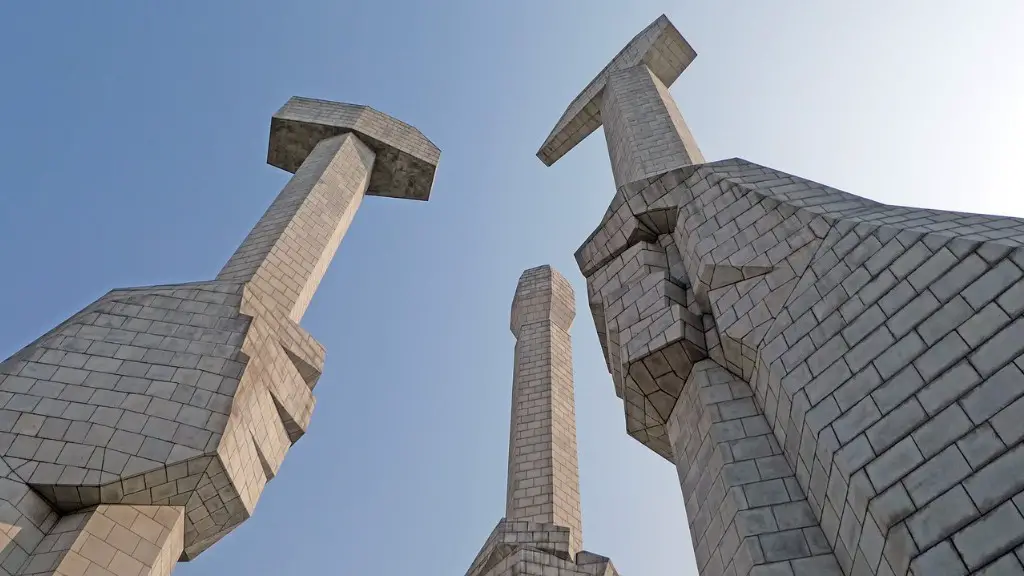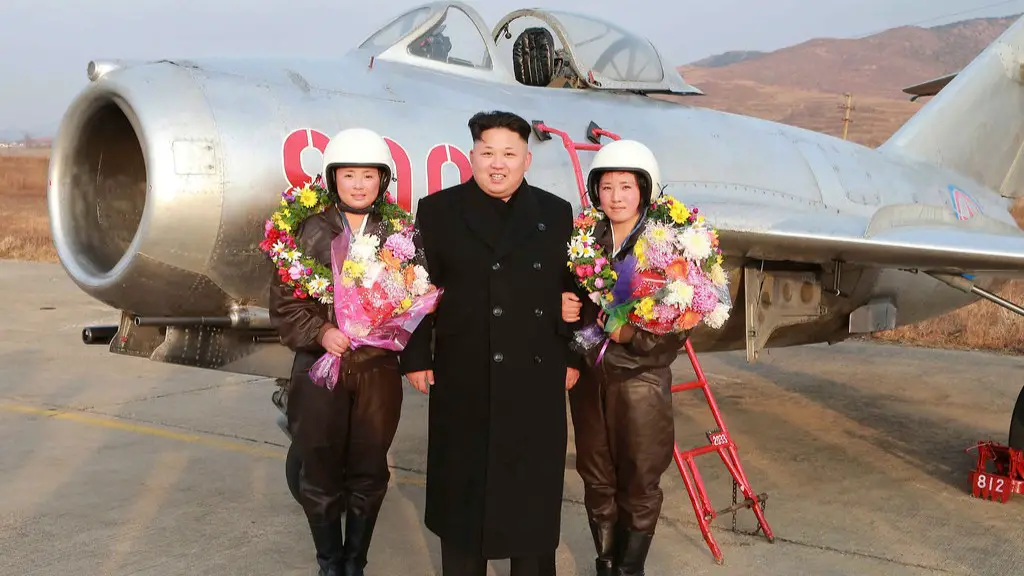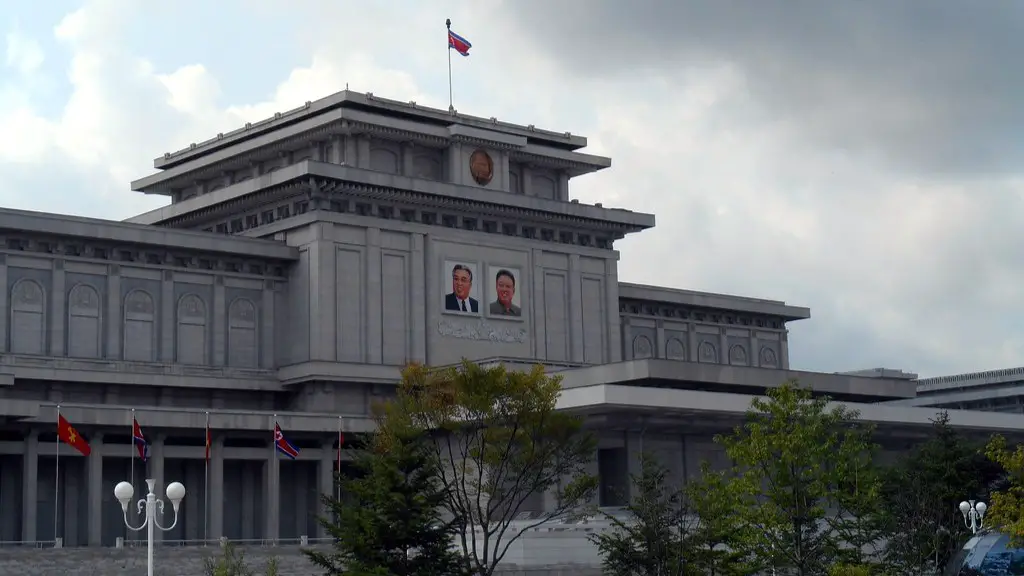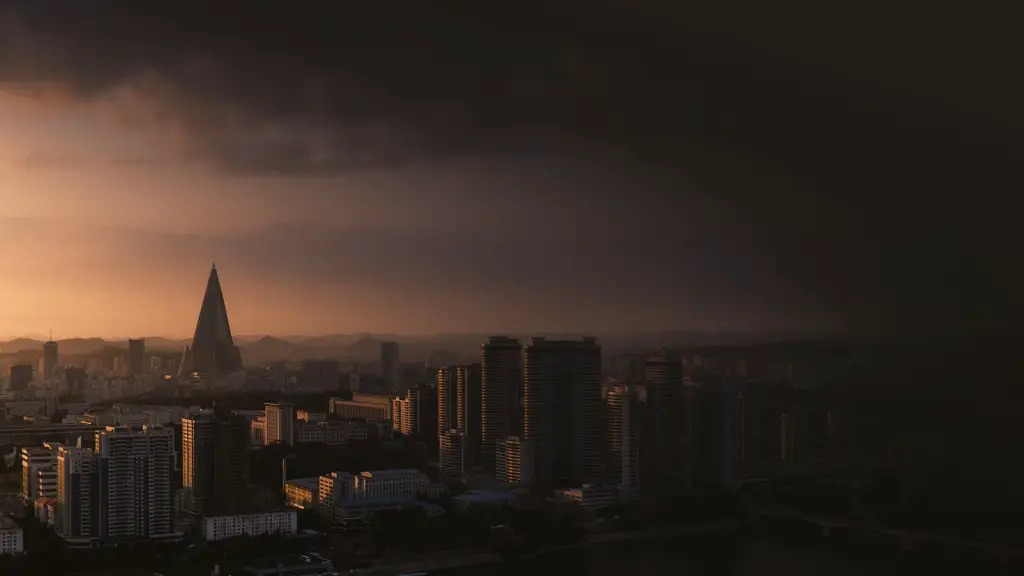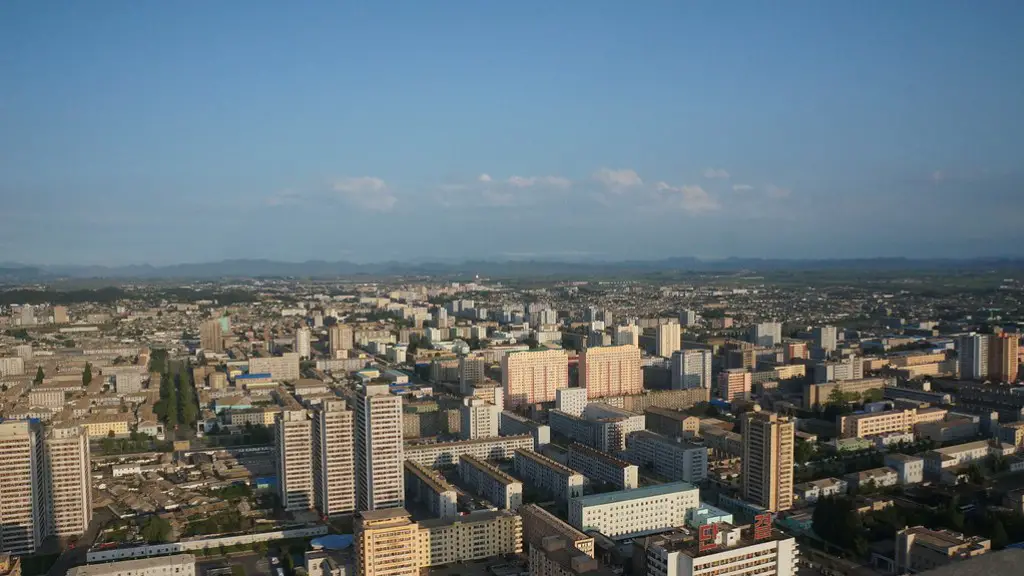Will North Korea Have A Revolution?
The political future of North Korea remains uncertain. Its citizens are living under vast oppression, denied basic human rights and even the ability to express dissent or protest. Many have been calling for a revolution in North Korea for years, but is it really possible?
It’s well known that the Kim family regime has been in power since the establishment of North Korea. The country’s political system has been described as an extreme form of Stalinism, with a political structure that forbids independent organizations, has banned the use of social media, and maintains arduous state press Regulations. Furthermore, Kim regime’s ‘Songun’ policy has allowed its members to maintain a huge military apparatus, estimated at more than 1 million active personnel, and it has invested heavily in the major figure Kim Jong-un and kept the economic system of North Korea closed.
Under these oppressive circumstances, it is natural for people to consider the possibility of a revolution occurring in North Korea. According to political experts, the regime is aware of this as it maintains an enormously powerful security apparatus to repress and track down potential dissidents and protesters, who face torture and possible execution.
The lack of any effective organization or infrastructure for potential revolutionaries is also significant. Groups like gangs and religious societies that could potentially wield significant power do not exist in North Korea in a meaningful way, which means that any revolution would need to gain huge popular support to get off the ground.
Speaking on the matter, political analyst Dr. Manasseh Simpson explains: ‘The idea of a popular revolution in North Korea, even with minimal outside support, is far-fetched and given the country’s current state, it seems unlikely that a mass revolt would be successful.’
The 2018 Winter Olympics saw an unprecedented level of diplomatic engagement between South and North Korea, suggesting that the diplomatic isolation of North Korea may be ending. This could be a sign of hope, but some observers worry that it could simply tighten the regime’s grip on power: Kim Jong-un could use the Olympic exposure to improve his popularity and tighten control over his citizens.
In terms of potential outcomes, it’s likely that change, whether in the form of a popular revolution or through increased diplomatic contact, will happen in North Korea, given the state of the country’s long-term political deadlock.
The Role of International Community
International observers believe that the role of the global community is paramount in any process of political change in North Korea. While much of the criticism of North Korea’s human rights record has come from Washington, foreign policies on the matter have been met with Chinese and Russian vetoes.
China and Russia were two of the signatories to the 1953 ceasefire agreement that resulted in the current form of the DMZ, and they hold considerable leverage in the situation. Beijing and Moscow continue to back the regime in Pyongyang, supplying it with the majority of its revenue and allowing it to evade greater international pressure.
It is clear that any change in North Korea would need gains from Russia and China, a prospect that seems unlikely due to the imperative for security that Pyongyang provides to both these states, as well as their deep-rooted economic interests in the North Korean market.
Dr. Simpson added that ‘if there is any movement in the North Korean situation internationally, it will require the cooperation and initiatives of China and Russia.’
Gaining Popular Support
With the lack of mass mobilization, it is highly unlikely that North Korea will experience a popular revolution. It is obvious that Kim Jong-un and his regime are aware of the precariousness of their position, and they will go to extraordinary lengths to secure their own survival. As such, gaining popular support for any revolution is a priority, something which would involve further co-operation between North Korea and the international community.
The presence of a highly controlled education system and an utterly oppressive security apparatus render any such possibility difficult. Additionally, North Korea does not have the necessary infrastructure for civil society or an organized opposition to an authoritarian regime. This is compounded further by the population’s general apathy and lack of awareness of the political system.
Essentially, any revolution would require a unified and well-orchestrated effort from the citizens of North Korea in addition to mass support and solidarity from abroad, something which is yet to be seen.
Emigration
The emigration of North Koreans poses a threat to the continuation of the current regime as it could shape public opinion and eventually lead to demands for liberalization. For example, increasing awareness of democratic practices in the South could lead to a change in attitude in the North and a subsequent demand for reform from below.
This is of great concern to the regime, who have mobilized the military to identify and repatriate potential North Korean refugees. North Korean defectors found in China are often subject to torture and forced labour upon repatriation. People attempting to leave the country face severe punishments from the secretive regime, including torture and even the death penalty.
Despite the threats, North Korean citizens continue to risk their lives to escape the dire situation in their homeland. The number of North Korean defectors reaching South Korea rose to a three-year high in 2018 and since then there have been even more reports of North Koreans who have managed to flee their home in search of a better life.
The Role of South Korea
The government of South Korea is yet to formulate any policy of its own on how to handle the situation in North Korea. However, it is becoming increasingly evident that the South is slowly becoming more engaged in Pyongyang’s internal politics, with various forms of support being extended to citizens of North Korea including forms of economic aid and educational opportunities.
At the same time, the South is showing diplomatic restraint, understanding the complex nature of the issue and the potential for exacerbating the already fragile situation. President Moon Jae-in has expressed his desire to see Pyongyang and Seoul talk, place calls for the end of nuclear threats, and provide improved opportunities for the citizens of North Korea.
The South is also playing a key role in the peace process, leading the way towards a gradual reconciliation between the two states. South Korea has hosted multiple talks between leaders of both the states, using talks and diplomacy to slowly try to thaw the icy relations.
The Role of the US
The United States has traditionally been a major player in the North Korea situation, primarily through sanctions, diplomatic pressure and military threats. This is unlikely to change in the near future as the US is still insistent on denuclearization as a precondition for any dialogue with North Korea.
President Trump’s unconventional approach has seen him opening diplomatic channels and engaging in direct talks with Kim Jong-un, rather than continuing the military strategy of the previous administrations. This, however, hasn’t led to any major breakthroughs, resulting in a continued stalemate.
Furthermore, the two states have not yet been able to agree on the timeline and scope of denuclearization, as North Korea wants economic aid and sanctions relief in exchange for denuclearization, while the US is seeking verifiable disarmament before any consideration of economic aid.
What to Expect?
The current state of the situation in the Korean peninsula is difficult to predict. While it is possible that an internal popular revolution could occur, it is unlikely due to the oppressive nature of the Kim regime. It is also unlikely that a direct overthrow of the current regime is possible, owing to the lack of support for such a project from Moscow and Beijing.
What can be expected is slow yet steady incremental change. The diplomatic initiatives from the South and the occasional diplomatic breakthrough from the US may spell out the beginning of the end for the Kim family’s long rule, but it is unlikely to happen in any dramatic or swift manner.
Increased engagement between the North and the South, as well as greater infrastructure for internal mass mobilization, could help bring about the much desired change. Until then, the North Koreans remain trapped in a bleak cycle of poverty and oppression, with little hope for a brighter future.
